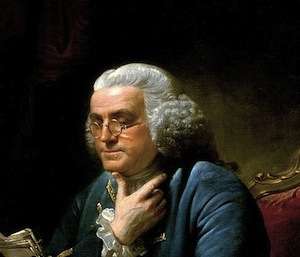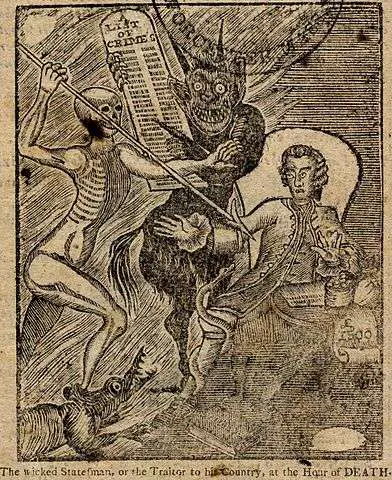Benjamin Franklin kept his secret about the Hutchinson letters he purloined for nearly a year. But then an innocent person stood to get killed over them.
In 1772, Franklin had received a batch of letters by Massachusetts Gov. Thomas Hutchinson from an unnamed member of Parliament. He thought he could do some good by sharing six of them with a small group of colonial leaders.
The American colonists were then headed toward a break with Britain. The British had provoked them over the Stamp Act in 1765, the Townshend Acts in 1767, the quartering of British troops in Boston in 1768 and the Boston Massacre in 1770.
Franklin took a politically neutral stance. As the American postmaster and agent for Massachusetts in London, he hoped to smooth over tensions by sharing the Hutchinson letters.
His plan backfired. Badly. Sam Adams got hold of the letters and used them to stir up even more unrest.
The Hutchinson Letters
Franklin believed the letters would show Parliament acting on bad advice from people like Hutchinson. Ironically, Hutchinson had been Franklin’s friend in 1754 when they worked on a plan to unite the colonies.
When Hutchinson wrote the letters, he served as lieutenant governor of the province. By 1770, he had risen to governor.

Thomas Hutchinson in 1750.
Franklin sent the letters in December 1772 to Thomas Cushing, speaker of the Massachusetts General Assembly. He thought he could trust Cushing to share the letters with a few people.
“There has lately fallen into my hands part of a correspondence that I have reason to believe laid the foundation of most if not all our present grievances,” Franklin wrote.
In the letters, Hutchinson advised subduing the colonists, described them as inclined to revolt and dismissed their resentment over ill-treatment and lack of representation.
The letters reached Boston in March 1773. They were widely circulated and published in the Boston Gazette in June 1773, then reprinted far and wide throughout the colonies. They infuriated Bostonians, who burned Hutchinson in effigy on Boston Common and demanded his removal from office.
Preventing Bloodshed
Hutchinson wrote the letters to Thomas Whately in his capacity as assistant to Prime Minister George Grenville. Whately had died, and his brother William let an American named John Temple have access to them.
When the letters became public, William Whately accused Temple of taking them. Temple challenged Whately to a duel. They faced off in early December, and Temple wounded Whately. That outcome didn’t satisfy either of them, so they agreed to another duel.
Franklin wanted to prevent the second duel, so he admitted he purloined the letters on Christmas Day — shortly after the Boston Tea Party. He had to appear before the Privy Council, where he stood silently as he was lambasted for thievery, dishonesty and provoking radicalism.
Worse, he lost his job as postmaster.
Franklin returned to America in 1775 committed to the cause of independence. The letters he sent to cool revolutionary ardor had actually inflamed his own.
Hutchinson left Massachusetts in 1774 and Gen. Thomas Gage replaced him.
To this day, no one knows who leaked the Hutchinson letters to Benjamin Franklin.
The letters urged the British to send more troops to suppress the American rebels, curtail civil liberties in the colony and take repressive measures against agitators.
Photo credits: ‘Benjamin Franklin 1767,’ by David Martin, courtesy The White House Historical Association. Licensed under Public domain via Wikimedia Commons.‘Wicked Statesman’ by Paul Revere, courtesy American Antiquarian Society. Licensed under Public domain via Wikimedia Commons. ‘Thomas Hutchinson’ by Edward Truman, courtesy Massachusetts Historical Society. Licensed under Public domain via Wikimedia Commons. This story was updated from the 2014 version.



2 comments
[…] the colonies in a reconciliation with the king. But the effort failed. His actions formally put Benjamin, who was a reluctant but vigorous Patriot leader, and William at odds. William might well have […]
[…] John befriended George Washington and Benjamin Franklin, and he corresponded with Ethan Allen, who wanted to name the town St. John. The writer suggested […]
Comments are closed.